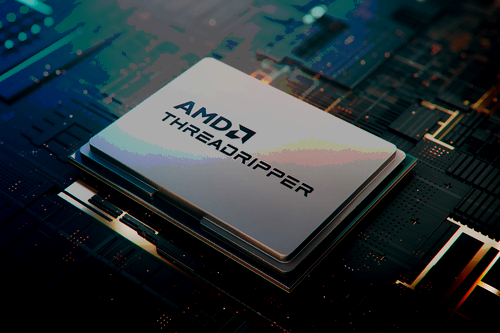
Overclocking an AMD Threadripper 7000-series CPU will blow a “hidden fuse” within the chip. This fuse, which has no effect on the CPU’s functionality, will help AMD recognize fraudulent warranty claims. However, AMD states that overclocking your CPU won’t void its warranty.
The “hidden fuse” in AMD’s Ryzen Threadripper 7000 platform was identified shortly after launch. But it became a bit controversial when PC builders encountered an alarming ODM BIOS warning on some motherboards; “overclocking mode will now be permanently enabled for this processor and effectively voiding [sic] warranty.”
In a statement to Tom’s Hardware, an AMD representative states that overclocking will not void a Threadripper 7000-series warranty. Apparently, AMD is now reaching out to ODMs to correct inaccurate BIOS warnings.
Threadripper 7000 Series processors do contain a fuse that is blown when overclocking is enabled. To be clear, blowing this fuse does not void your warranty. Statements that enabling an overclocking/overvolting feature will “void” the processor warranty are not correct.
In other words, AMD won’t punish you for overclocking a Threadripper 7000-series CPU. If an overclocked Threadripper PRO 7995WX falls victim to some manufacturing defect, for example, it’ll still be covered by AMD’s warranty.
Damage that is caused by overclocking isn’t covered by the warranty, though. And that’s the way it’s always been.
The “hidden fuse” in Threadripper 7000-series CPUs is a diagnostic tool. It helps AMD carry out when a CPU has been damaged by overclocking. This may curb fraudulent warranty claims and reduce the amount of labor involved in AMD’s diagnostic process. Some of AMD’s workstation chips already contain this fuse—its efficacy has been tested in the real world.
We don’t know exactly how the “hidden fuse” works. Presumably, the fuse is placed on a dedicated circuit and receives a quick spike in voltage when overclocking is first enabled. This isolated design would impede any unintentional damage to the processor.
Obviously, some customers are concerned that AMD will use the “hidden fuse” diagnostic system to deny legitimate warranty claims. This seems unlikely. AMD has nothing to gain from defrauding its most enthusiastic customers. In any case, accusations of foul play will probably crop up in the future, as some customers will refuse to admit that they fried their own CPU.
If you pick to overclock or overvolt your PC, be careful. Follow overclocking guides and use good hardware. Even if you stay within a “safe” range when overclocking, poor thermals or a crappy PSU can ruin the whole thing.
Source: AMD via Tom’s Hardware

